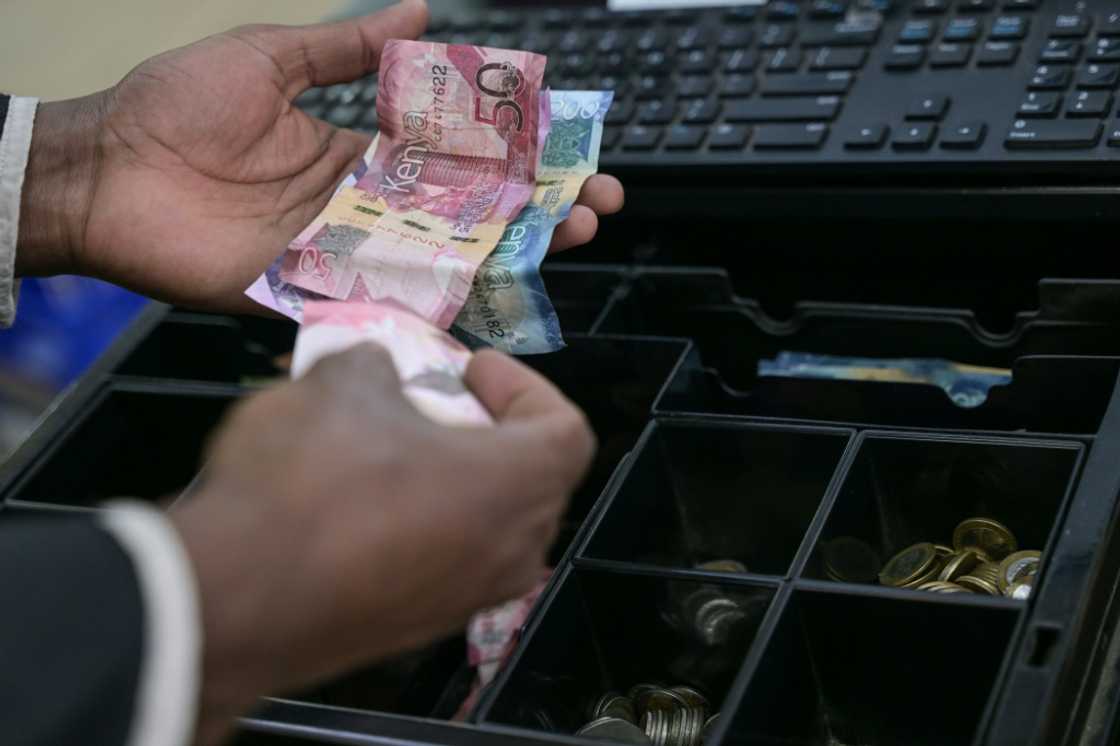Moody's cuts Kenya debt rating further into junk territory

Source: AFP
Moody's has downgraded Kenya's debt rating further into junk territory and warned the outlook was negative after a wave of protests led the government to abandon proposed tax hikes.
President William Ruto, facing the most serious crisis of his near two-year presidency, last month scrapped a finance bill aimed at replenishing government coffers and helping reduce its huge debt burden.
The move came after widespread demonstrations led by young Gen-Z Kenyans against the tax increases that threatened to add to the economic hardship of people already gripped by a cost of living crisis.
The US-based ratings agency said in a statement on Monday it was cutting the ratings for Kenyan government debt by one level to Caa1 -- considered to have "very high credit risk".
The new rating, and Moody's negative outlook for the country, are likely to further increase borrowing costs for the cash-strapped government.
'Debt distress'
Moody's said the downgrade reflected the "significantly diminished capacity" of one of the largest economies in East Africa to raise taxes and reduce debt.

Source: AFP
"In particular, the government's decision not to pursue planned tax increases and instead rely on expenditure cuts to reduce the fiscal deficit represents a significant policy shift with material implications for Kenya's fiscal trajectory and financing needs," it said.
"In the context of heightened social tensions, we do not expect the government to be able to introduce significant revenue-raising measures in the foreseeable future."
On Tuesday, Ruto defended the government's financial strategy, saying it was designed to "pull the country back from the danger of debt distress, and set us on a path of economic transformation".
His administration has been under pressure from the International Monetary Fund, which has called for fiscal reforms in order to access crucial funding.
But Ruto announced on June 26 that he was withdrawing the finance bill that was aimed at raising a further $2.7 billion after the largely peaceful rallies over the tax hikes degenerated into deadly violence.

Source: AFP
At least 39 people have been killed since the demonstrations began on June 18, according to the national rights commission.
While the rallies have eased, the protest action has widened into a campaign against perceived state extravagance and corruption, alongside calls for Ruto to go.
Last Friday, the president said his administration had to compensate for the lack of the extra tax revenue, announcing budget cuts of 177 billion shillings ($1.4 billion) and additional borrowing of around 169 billion shillings.
He said Tuesday that the country needed to address priority issues including its debt mountain, public spending and anti-corruption measures.
Kenya's public debt already amounts to some 10 trillion shillings, around 70 percent of gross domestic product.
The Kenya Revenue Authority announced on Monday that it had collected 2.4 trillion shillings in the financial year ended June 30, a rise of more than 11 percent over the previous year, but 4.5 percent below target.
Despite the unrest, the Kenyan shilling has remained largely stable, hovering at around 128 to the dollar after plunging to a record low of more than 160 in January.
In another move aimed at placating his critics, Ruto also announced Tuesday an agreement to establish a panel to appoint members of the Independent Electoral and Boundaries Commission.
The body found itself at the heart of a fierce dispute over the outcome of the 2022 election that brought Ruto to power when some of its commissioners disowned the results.
New feature: Сheck out news that is picked for YOU ➡️ click on “Recommended for you” and enjoy!
Source: AFP




